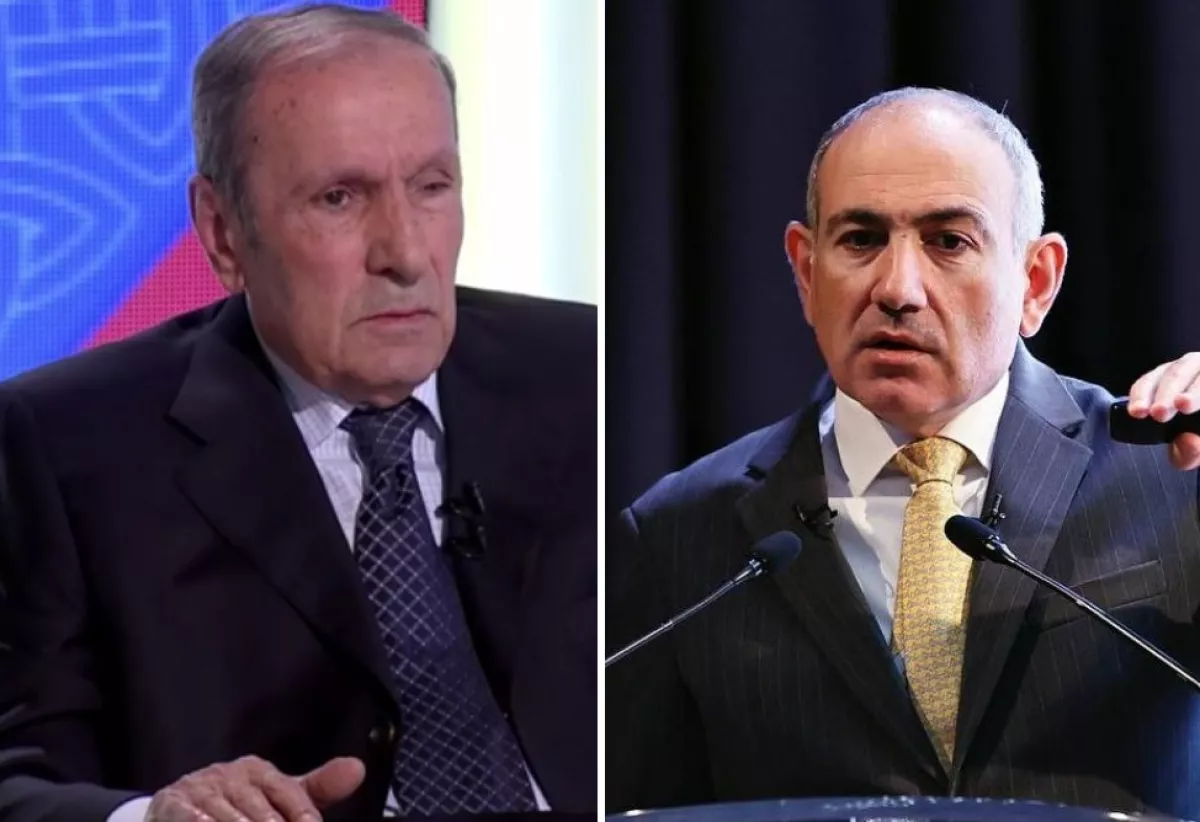Armenia's ex-president fires back at Pashinyan The shadow speaks
We continue to update our readers on the ongoing virtual debate, or rather, the clash, between Prime Minister Pashinyan and Armenia’s former presidents. To recap, Pashinyan invited the former leaders to a debate to prove his argument that the negotiations with Azerbaijan were always about returning Karabakh to it.
In our previous publication, we covered the responses of Kocharyan and Sargsyan, who both declined the debate. Now, the response of Armenia’s first president, Levon Ter-Petrosyan, has arrived, delivered through his press secretary Arman Musinyan. The tone of his response is surprising in its familiarity—something even the leaders of the Karabakh clan did not dare to use. “What is there to debate with you when, due to your adventurism, the subject of the debate, Armenian Artsakh, no longer exists, and you have no choice but to make desperate attempts to distract our people from this bitter reality? Make as much noise as you want. This reality is already a historical fact that cannot be erased,” said Ter-Petrosyan.
It is particularly gratifying to hear the words "Artsakh no longer exists, and this is a historical fact" from the person under whose leadership Azerbaijani territories were occupied. It is, in general, understandable why Ter-Petrosyan feels such "great sorrow" upon realizing that his lifelong dream has been shattered to dust—and why he is unwilling to discuss the matter.
However, let’s continue. The former president then makes a counterproposal to the prime minister: “Nikol, if you want the public to learn the whole truth about the diplomatic process of resolving the Karabakh issue, here’s my suggestion: since, after the fall of Artsakh, the mystery surrounding this process has lost its relevance, publish all the peace plans officially presented by the co-chairs of the OSCE Minsk Group, along with the official responses of Armenian diplomacy to them. Only then would this truly be a debate based on facts. If you don’t do this, you will once again prove that you are running from the truth and cowardly attempting to evade historical responsibility.”

Here, the former president attempts to show that the Armenian side did not adopt a passive position in the negotiations by accepting the context of Azerbaijan’s territorial integrity. These words from the ex-president are, understandably, not without logic. The issue is that Pashinyan, when claiming that his predecessors only conducted the peace process with the return of Karabakh in mind, is also somewhat misleading.
The OSCE Minsk Group itself was openly pushing the Armenian vision for resolving the Karabakh issue. Let’s recall the proposed conflict resolution plans, in which Armenian forces would withdraw from five regions, foreign peacekeepers would be deployed at the line of contact, and the “status of Karabakh” would be postponed indefinitely. Such solutions, if not de jure, would de facto further solidify Armenia’s occupation of Karabakh, as they would significantly complicate any military resolution due to the presence of international peacekeepers in the region, who would likely be aligned with Yerevan. Naturally, Azerbaijan firmly rejected such proposals.
However, what interests us more is not the nuances of the Armenian position in the negotiations, nor the details of the demagogic arguments among various political forces in Armenia, but rather the effect these discussions have on the current political landscape. In this regard, Ter-Petrosyan makes the same mistake as Kocharyan and Sargsyan. Like them, he refuses to engage in the debates, using a flawed argument. It’s clear that, unlike the leaders of the Karabakh clan, Ter-Petrosyan does not seek to become the country’s leader again, but for the sake of party interests—especially given that the Armenian National Congress (ANC) urgently needs to boost its ratings ahead of the 2026 elections—he should have accepted the challenge. Debates are a form of spectacle, something voters love, and no amount of publication of lengthy documents, let alone their public reading, can replace this spectacle. The very argument about documents would have been far more effective in the debates themselves, rather than in a publication demonstrating a refusal to engage.
What’s the point of all this? The point is that, for now, we can only state that Prime Minister Pashinyan has taken the first step toward boosting his rating on the long road to the 2026 elections. His opponents have signed their own declaration of cowardice and sluggishness. At present, no figures or parties are emerging on the Armenian political horizon capable of challenging the current ruling team.








